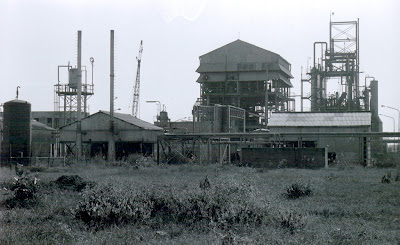The Bhopal gas tragedy, also known as the Bhopal disaster, is considered one of the most catastrophic industrial accidents in history. It occurred on the night of December 2-3, 1984, in the city of Bhopal, which is located in the central Indian state of Madhya Pradesh. The disaster resulted in the release of a deadly gas called methyl isocyanate (MIC) from a pesticide plant owned by Union Carbide India Limited (UCIL). The consequences were devastating, causing immediate deaths, long-term health issues, and environmental damage.
The Union Carbide plant in Bhopal was established in the 1960s to produce pesticides, including the highly toxic pesticide Sevin. The plant utilized large quantities of hazardous chemicals, and safety concerns had been raised by workers and local residents for years leading up to the tragedy. However, these concerns were largely ignored, and inadequate safety measures were in place.
The disaster unfolded when water entered a storage tank containing a significant quantity of MIC. The water triggered a violent reaction, leading to the release of toxic gases into the atmosphere. The gas cloud, composed mainly of MIC, hydrogen cyanide, and other lethal chemicals, quickly spread across the densely populated areas surrounding the plant.
The immediate impact was catastrophic. Thousands of people were exposed to the toxic gas, resulting in widespread panic and chaos. The effects were felt most severely in the slums located near the plant, where the majority of the victims lived. The gas caused respiratory distress, eye irritation, and other severe health issues. Many people died within hours of exposure, while others succumbed to the effects in the following days.
The official death toll reported by the Indian government was around 3,800, but various estimates suggest that the actual number of fatalities could be much higher, reaching tens of thousands. The lack of an accurate count is attributed to factors such as the inability to identify all the victims and the long-term health impacts that led to deaths over the years.
In addition to the immediate human toll, the Bhopal gas tragedy left a lasting impact on the survivors. Many suffered from chronic health problems, including respiratory issues, eye disorders, and reproductive problems. Birth defects and developmental abnormalities were reported among the children born to survivors. The tragedy also had a profound psychological impact on the affected communities, leading to widespread trauma and mental health issues.
The aftermath of the disaster saw a surge in legal battles, investigations, and debates surrounding corporate responsibility, industrial safety, and environmental regulations. Union Carbide, the American multinational corporation that owned the Bhopal plant, faced intense scrutiny. In 1989, the company reached a settlement with the Indian government, agreeing to pay $470 million in compensation. However, this amount was widely criticized as inadequate, given the scale of the tragedy and the long-term consequences for the victims.
The legal proceedings continued, and in 2010, eight former officials of Union Carbide India, including the then CEO Warren Anderson, were convicted in India for their role in the disaster. Anderson, however, had never faced trial in person and had passed away in 2014. The sentences handed down were criticized for being too lenient, considering the magnitude of the tragedy.
The Bhopal gas tragedy also prompted changes in industrial regulations and environmental laws in India and globally. It underscored the importance of stringent safety measures and raised awareness about the potential hazards associated with the chemical industry. The disaster contributed to discussions on corporate responsibility, emphasizing the need for companies to prioritize the safety of their operations and the well-being of surrounding communities.
The site of the Union Carbide plant in Bhopal remains a grim reminder of the tragedy. The abandoned factory, often referred to as the "Bhopal Carbide Factory," continues to leak toxic chemicals, posing a threat to the environment and the health of those living in the vicinity. Efforts to clean up the site and address the environmental contamination have been slow and fraught with challenges.
The Bhopal gas tragedy remains a symbol of corporate negligence, inadequate regulatory oversight, and the devastating consequences that can result from the prioritization of profit over safety. The survivors and their families continue to advocate for justice, adequate compensation, and comprehensive healthcare, highlighting the ongoing struggle for accountability and the need for a safer and more responsible industrial landscape.
.JPG)




 Pramod Pathak
Pramod Pathak



